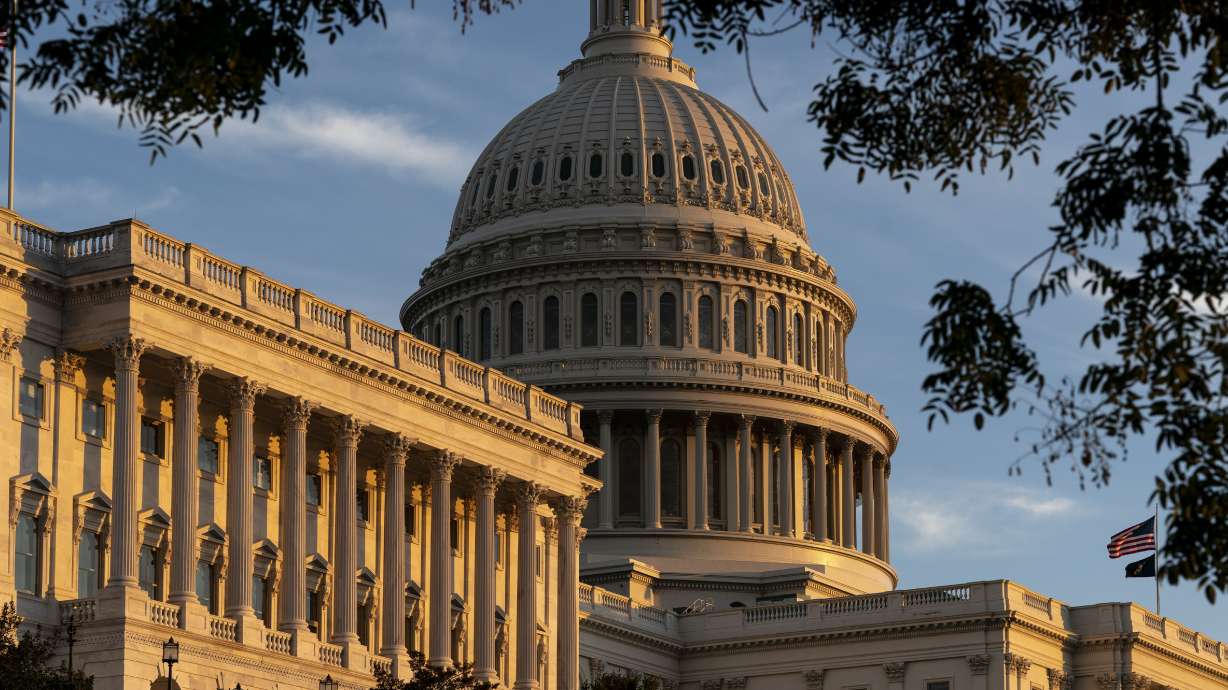Estimated read time: 3-4 minutes
This archived news story is available only for your personal, non-commercial use. Information in the story may be outdated or superseded by additional information. Reading or replaying the story in its archived form does not constitute a republication of the story.
SALT LAKE CITY — It's time to end a federal COVID-19 pandemic emergency declaration first put in place nearly three years ago by then-President Donald Trump, the U.S. Senate has decided.
President Joe Biden has threatened to veto a resolution ending the declaration that passed the Senate late Tuesday in a 62-36 vote, with 12 Democrats joining all of the Senate's Republicans. It is not clear whether the House, which remains under Democratic control until January, will consider the issue.
A similar resolution passed the Senate in March along party lines, but was not taken up by the House.
After Biden said in September that the pandemic was over in a widely publicized interview, Sen. Roger Marshall, R-Kan., brought the issue back. Marshall said on the Senate floor Tuesday that the emergency declaration was giving the president the ability "to supersize government powers," The Wall Street Journal reported.
Marshall said in his prepared remarks that since the March vote, "even more evidence shows the emergency phase of this pandemic has come and gone," with what he called an "improved" clinical situation in terms of hospitalizations and deaths from the virus.
The declaration has allowed the administration to use the National Emergencies Act to suspend payment deadlines for student loans, close ports of entry and take other actions, the newspaper said. Biden's student loan forgiveness plan, which is being challenged in court, is tied to his authority in a national emergency.
Signed by Trump in March 2020, the declaration also eased requirements for Medicaid and other federal health programs.
In a statement from the Office of Management and Budget, the Biden administration spelled out that if Congress passes the resolution, the president will veto it, warning ending the authority granted by the emergency declaration "abruptly and prematurely would be a reckless and costly mistake."
While COVID-19 is no longer the disruptive threat that it once was and we have made tremendous progress in combating the virus, the virus continues to pose a risk to the American people and our health care system.
–A statement from the Office of Management and Budget
"While COVID-19 is no longer the disruptive threat that it once was and we have made tremendous progress in combating the virus, the virus continues to pose a risk to the American people and our health care system," the statement said, citing the threat of new and future versions of the virus as the nation heads into winter.
Sen. Ron Wyden, D-Ore., spoke against ending the emergency declaration.
"This Republican effort ... comes down to less flexibility and more chaos in America health care," Wyden said on the Senate floor before the vote, The Wall Street Journal reported. "That sounds like an idea the United States Senate ought to avoid."
A separate federal public health emergency declaration will apparently remain in place well into the new year. That declaration was renewed for three months by U.S. Health and Human Service Secretary Xavier Becerra in October and the administration's self-imposed deadline for announcing it won't be renewed again has passed.
After trying repeatedly without success to secure more COVID-19 funding from Congress, the White House is requesting $10 billion, CNBC reported. The request includes $2.5 billion for COVID-19 vaccines, $5 billion for further vaccine development and money for researching what's known as long COVID-19 and international aid.









